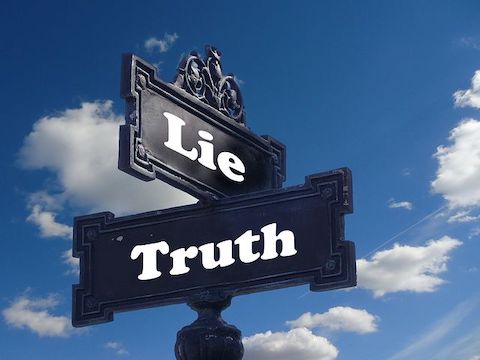Why You Might be Afraid to Be Open With Your Partner or Others
By Dr. Margaret PaulAugust 19, 2019
Discover what you are sacrificing if you withhold your truth due to your fear of others' reactions.

"He will be so angry if I tell him that."
"I'm afraid of losing her if I'm honest with her."
How often have you said to yourself, "I can't say that because he or she will get angry, shut down, get hurt, or leave"?
How do you feel when you are not open with your partner or others about your feelings, needs, wants, and actions? I have noticed that when I don't speak my truth, I feel angry or depressed inside. My inner child really hates it if I allow fear to stop me from being fully authentic. My anger or depression is my inner child's way of letting me know that I am abandoning her.
When your partner or others react to your truth with anger, withdrawal, hurt, or threats of leaving, they believe that their controlling behavior is working for them. Because you are either willing to lose yourself rather than lose them, or you are willing to lie or withhold the truth, they can continue to react with their controlling behavior without directly experiencing the consequences of their behavior on the relationship.
If you are afraid to be open with your partner, this system likely started early in your relationship.
Think back to the first time your partner reacted with anger or withdrawal to something you said or did. See of you can remember what you thought at the time. The chances are that what you did NOT think was, "If this happens again, then this is not the right person for me." Since you are still with your partner, it is likely that you thought something like, "I'd better be more careful about what I what I say," or "I can't let him or her know about this again." Your partner's anger or withdrawal, and you giving yourself up, began the system that may still be operating today.
Many of us learned to not tell our parents a lot of things to avoid their upset and resulting punishment. We learned to behave in ways that avoided disapproval, and we generally carry this pattern into our adult relationships.
The problem with this is it erodes the possibility of closeness in your relationships. The more you control by not being open, and the more your partner or others control with their reactive behavior, the more the walls build between you. I've worked with many people who didn't have the courage to tell the truth until they were ready to leave a relationship. When they finally spoke their truth, their partner or friend often reacted with, "I wish I had known this earlier in our relationship."
What are you not telling your partner or others? Are you not saying:
"I feel pulled on by you much of the time to fill up your emptiness and it's draining to me."
"Your anger, blame and judgment is so hurtful to me that I'm thinking of ending this relationship."
"I no longer feel a connection between us because we can't seem to talk about anything without getting into an argument. I want a relationship with someone who is open to learning with me."
"I'm no longer sexually turned on to you because we are not emotionally connected."
"I'm no longer sexually turned on to you because you have let yourself go physically."
Think about what you would say to your partner or others if you were to be completely honest. Think about what you are avoiding by not speaking your truth.
Is it worth it to you to continue sacrificing your integrity and authenticity to control others? Is it worth it to you to lose yourself rather than risk losing them?
Heal your relationships with Dr. Margaret’s 30-Day online relationship course: Wildly, Deeply, Joyously in Love.
 Send this article to a friend
Send this article to a friend  Print this article
Print this article  Bookmarked 0 time(s)
Bookmarked 0 time(s)
Comments
| Author | Comment | Date |
|---|---|---|
| Join the Inner Bonding Community to add your comment to articles and see the comments of others... | ||

Daily Inspiration
Today, notice what you do to avoid painful feelings. Do you stay in your head instead of in your body? Do you keep your breath shallow? Do you get angry, withdrawn, judgmental? Do you use food, alcohol, drugs, sex, spending, gambling, work, TV? Today, compassionately embrace and learn from your feelings rather than avoiding them, and see how you end up feeling.
By Dr. Margaret Paul

 Share with Del.icio.us
Share with Del.icio.us Share with Digg
Share with Digg






